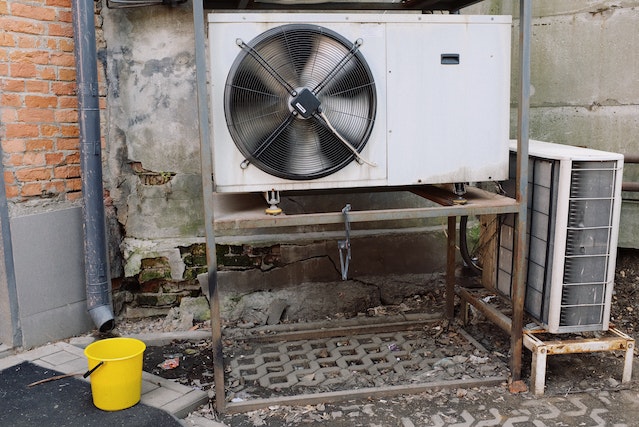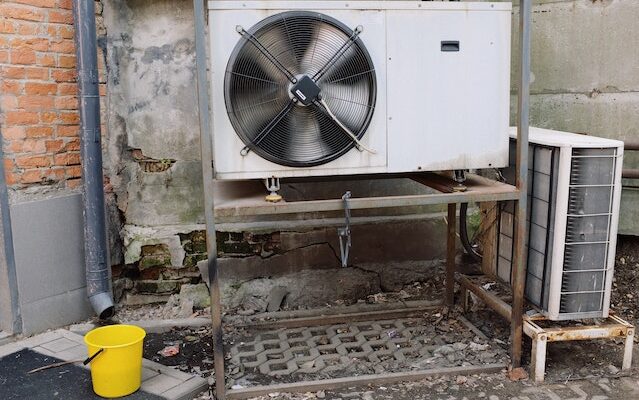Heating and cooling systems are essential for maintaining indoor comfort and air quality in homes and buildings. These systems regulate the temperature and humidity levels, ensuring that the indoor environment is comfortable and healthy for the occupants.

There are several types of heating and cooling Melbourne, including:
- Central heating and cooling systems: Central heating and cooling systems provide heating and cooling for an entire building through a central unit that distributes air through a network of ducts. Examples include ducted heating and cooling systems and furnace-based systems.
- Split-system heating and cooling: Split-system heating and cooling consists of two separate units: an outdoor unit that houses the compressor and a separate indoor unit that provides the heating and cooling.
- Portable heating and cooling: Portable heating and cooling systems are compact units that can be easily moved from room to room and provide heating and cooling for a single room.
- Radiant heating and cooling: Radiant heating and cooling systems provide heating and cooling through radiant heat transfer, where heat is transferred directly to the surfaces of objects and people in the room, rather than through the air.
- Geothermal heating and cooling: Geothermal heating and cooling systems use the constant temperature of the earth to regulate indoor temperature, making them an energy-efficient option.
When choosing a heating and cooling system, it’s important to consider factors such as the size of your home or building, the climate in your area, your budget, and your energy efficiency goals. A professional heating and cooling contractor can help you assess your needs and recommend the best system for your situation.
How HVAC Systems Work
HVAC stands for Heating, Ventilation, and Air Conditioning, and refers to the system used to regulate the indoor temperature and air quality in homes and buildings. The basic components of an HVAC system include:
- Furnace: The furnace is the primary heating component of an HVAC system. It uses natural gas, propane, oil, or electricity as a fuel source to heat air that is then distributed throughout the building through a network of ducts.
- Air conditioner: The air conditioner is the primary cooling component of an HVAC system. It works by removing heat from the indoor air and expelling it outdoors.
- Ducts: Ducts are the pathways that distribute the heated or cooled air from the furnace or air conditioner throughout the building.
- Thermostat: The thermostat is the control center of an HVAC system, allowing you to set the desired temperature and control the operation of the heating and cooling components.
- Refrigerant: Refrigerant is a special fluid used in air conditioners to transfer heat from inside to outside the building.
- Evaporator coil: The evaporator coil is part of the air conditioning system and is located inside the building. It is responsible for absorbing heat from the indoor air and removing it from the building.
- Condenser coil: The condenser coil is part of the air conditioning system and is located outside the building. It is responsible for releasing the heat absorbed by the evaporator coil into the outside air.
- Blower: The blower is responsible for circulating the air through the ducts and distributing the heated or cooled air throughout the building.
In general, an HVAC system works by using the furnace to heat air in the winter, and the air conditioner to cool air in the summer. The thermostat monitors the temperature in the building and turns the heating and cooling components on and off as needed to maintain the desired temperature. The ducts distribute the air throughout the building, while the blower circulates the air to ensure even temperature distribution.
How to Choose the Right HVAC System for You
Choosing the right HVAC system for your home or building is an important decision that will impact your comfort and energy costs for years to come. Here are some factors to consider when choosing an HVAC system:
- Size of your home or building: The size of your home or building will determine the capacity of the HVAC system you need. A professional HVAC contractor can perform a load calculation to determine the right size system for your specific needs.
- Climate: The climate in your area will impact the type of HVAC system you choose. For example, if you live in a hot and humid climate, a central air conditioner may be the best choice, while if you live in a colder climate, a furnace-based heating system may be more appropriate.
- Energy efficiency: HVAC systems can be a significant source of energy consumption in your home or building. Look for systems with high Seasonal Energy Efficiency Ratings (SEER) for air conditioners and Annual Fuel Utilization Efficiency (AFUE) ratings for furnaces to maximize energy efficiency.
- Budget: HVAC systems can vary widely in cost, from basic systems to highly advanced and energy-efficient models. Determine your budget and look for systems that offer the best value for your money.
- Lifestyle: Consider your lifestyle when choosing an HVAC system. For example, if you have allergies or sensitivities, look for systems with air purification capabilities. If you are a tech-savvy person, consider a smart HVAC system that can be controlled through a smartphone app.
- Future plans: Consider any future plans for your home or building, such as home additions or renovations, when choosing an HVAC system. You want to choose a system that can accommodate any future needs and changes.
- Professional installation: Proper installation of an HVAC system is essential for ensuring optimal performance and energy efficiency. Look for a professional HVAC contractor with a good reputation and experience installing the type of system you are interested in.
In conclusion, choosing the right HVAC system requires careful consideration of several factors, including size, climate, energy efficiency, budget, lifestyle, future plans, and professional installation. Work with a reputable HVAC contractor to determine the best system for your specific needs and ensure a successful installation.










